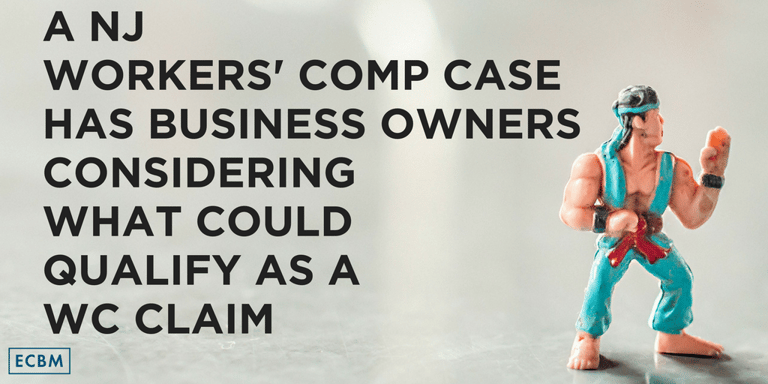
As employers continue to take successful action to reduce their worker’s compensation claims, the question of how far worker’s compensation extends comes up fairly often. Many people often believe it takes little more than an employee suffering an injury at the location of their employment for a claim to qualify for worker’s compensation. The actual law in most states is more complicated than that, as a recent action out of New Jersey showed.
What Does A Workers' Compensation Claim Look Like In NJ?
The New Jersey Worker’s Compensation law states that the worker’s compensation will cover injuries that arise out of and in the course of employment. In determining whether an injury arises out of and in the course of employment, New Jersey courts have looked to whether the accident occurred
(1) during the period of employment
(2) at a place reasonable for the employee to be during employment, and
(3) while reasonably fulfilling the duties of the employment or something incidental thereto. Crotty v. Driver Harris Co., 49 N.J. Super 60, 69 (App. Div. 1958).
How Could An Injury At Work Have Nothing To Do With Work?
In Lesley Joseph v. Monmouth County, an appellate court of New Jersey had to apply these factors to an assault that occurred between two co-workers. The co-workers took part in an informal loan arrangement system known as a susu, wherein people pay into a pot a certain amount per period and one person takes home the whole pot on a rotating basis. The susu in this case involved several people who were not co-workers of those involved in the assault. The Plaintiff in the case questioned his co-worker about late payments from the susu, which led to the co-worker assaulting the Plaintiff with a hammer while he slept in the employee break room.
While Being Coworkers, The Cause Of The Incident Was Not Work Related
The Court found several reasons for determining that this assault did not constitute an accident arising out of and in the course of employment. First, the Court focused on the fact that the dispute which led to the fight resulted from a side venture rather than something related to the co-workers’ employment relationship. Second, the Court focused on the fact that Plaintiff was not working at the time of the assault but rather sleeping in the break room in contravention of the rules of his employment.
Other Examples
New Jersey courts have consistently held that workplace assaults between employees that occur due to personal vengeance or non-employment related personal reasons are not covered by worker’s compensation. At the same time, there are some types of co-worker assaults that worker’s compensation will cover. Where the tensions between the co-workers arises from workplace disputes or employment created the conditions that caused the assault.
Keep An Open Mind When Thinking What A WC Claim Would Look Like
Fights between co-workers can create a number of liability issues for employers, as well as a number of other headaches. Cases like this help serve as useful reminder that companies must be prepared for everything in protecting themselves from worker’s compensation claims.



